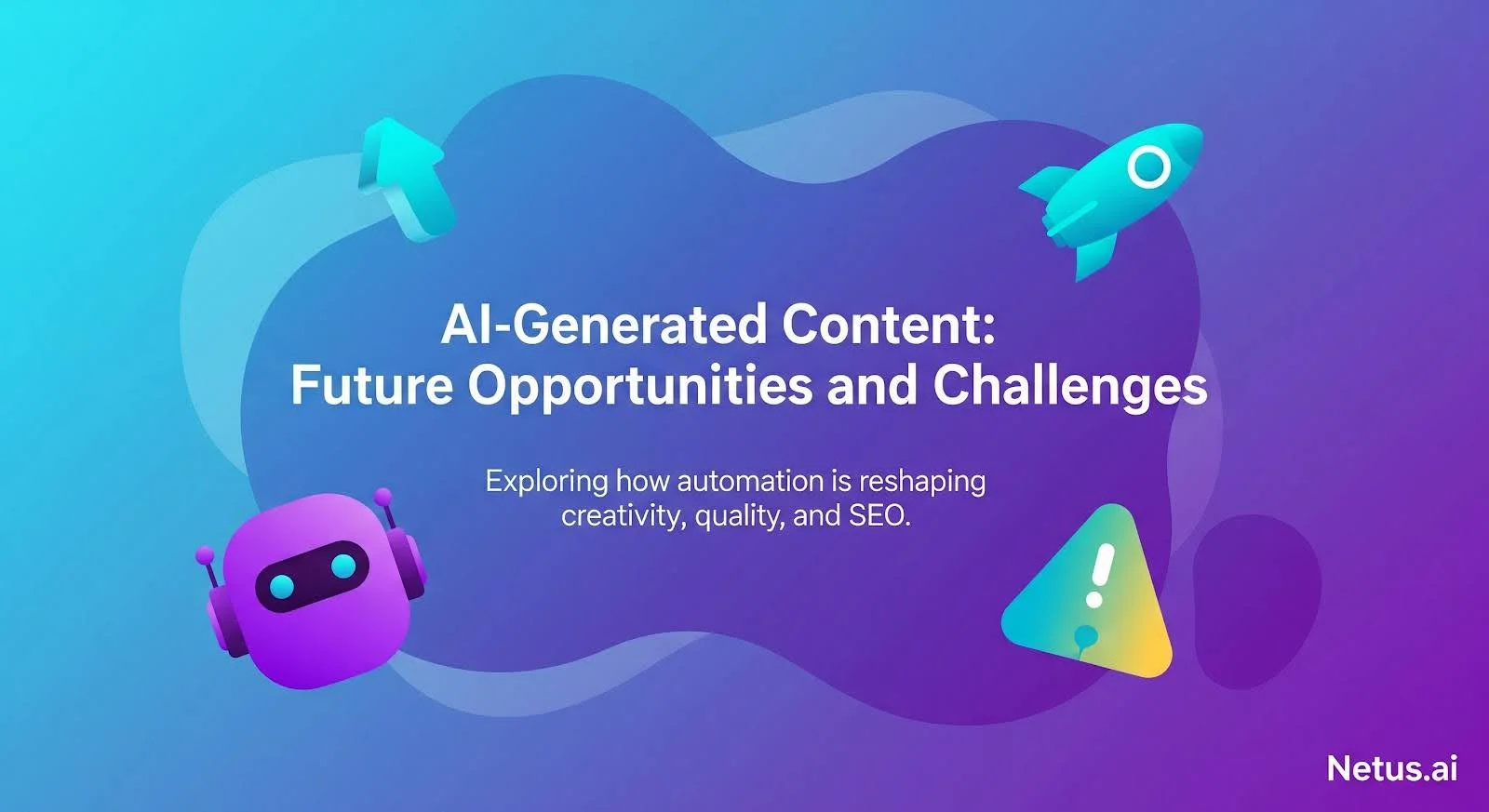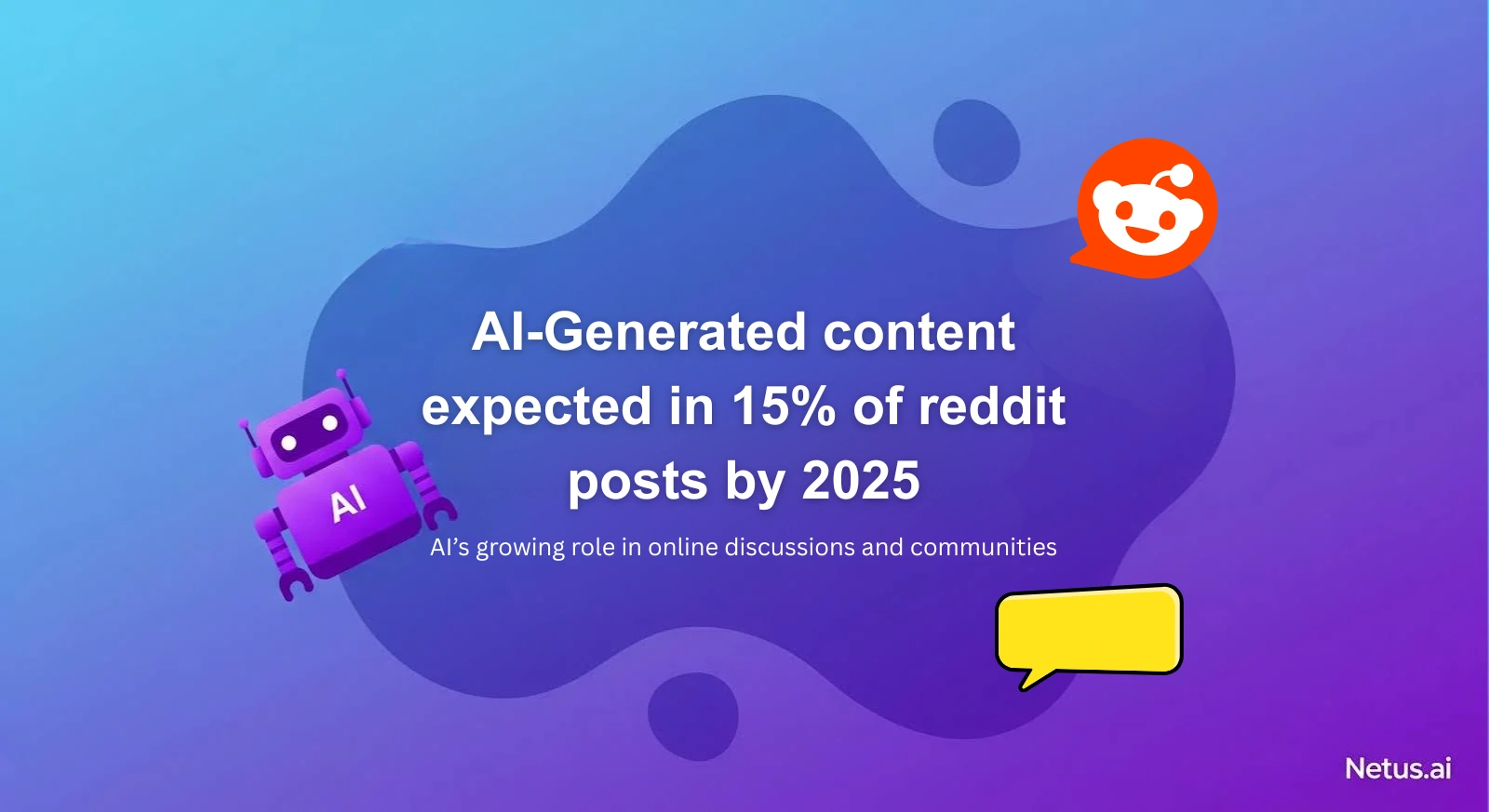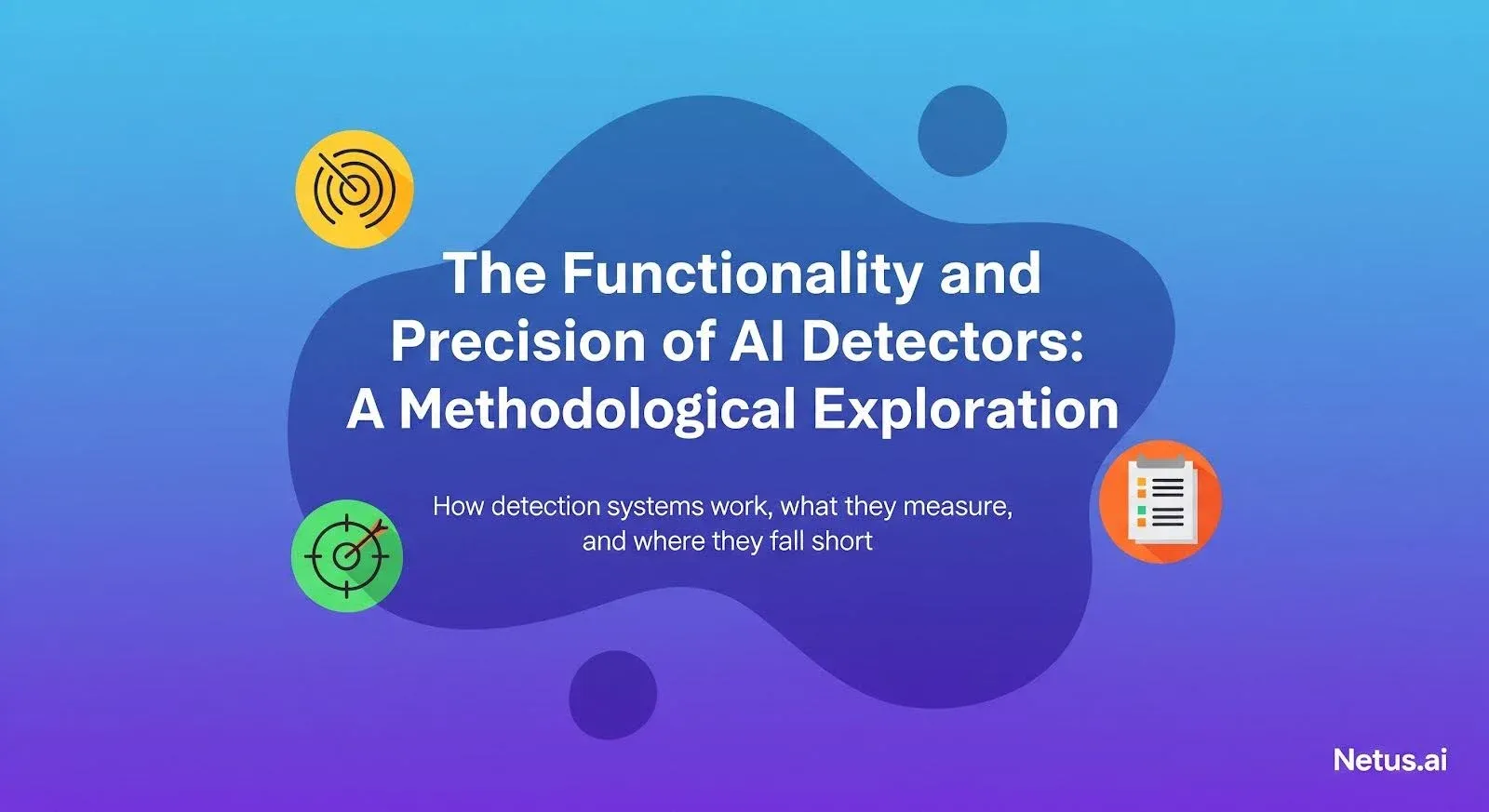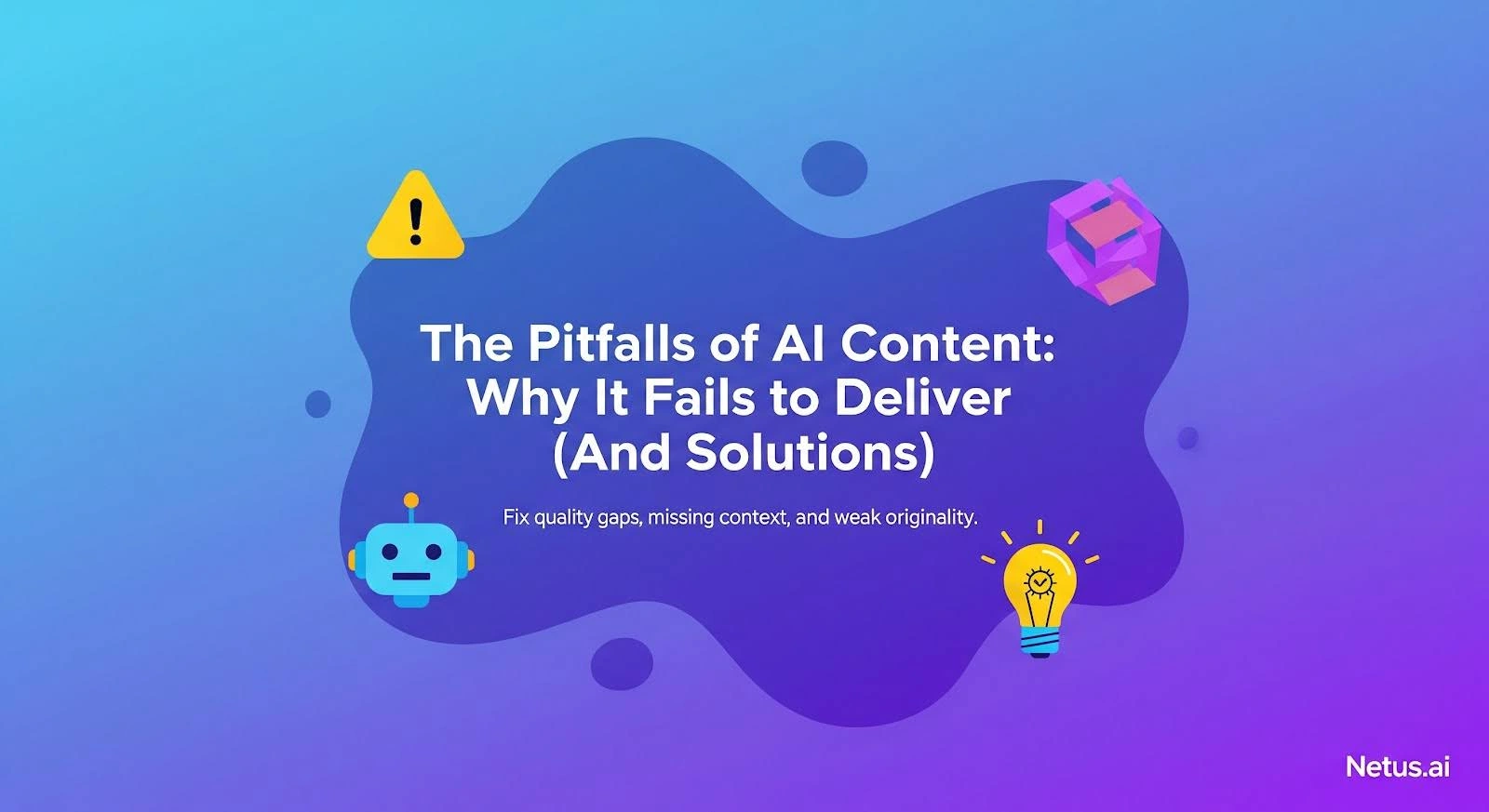AI’s prevalence is growing across industries, with an increasing amount of AI content appearing in Google search results. As discussions around generative AI expand, a clear trend is emerging.
The optimal application and future evolution of AI continue to be subjects of much inquiry.
Explore the opportunities and challenges presented by the future of AI generated content.
Key takeaways
- The rapid evolution of AI generated content is significantly impacting various industries, with further influences widely anticipated as it continues to develop.
- Human oversight is crucial: Even with AI automating tasks, human creativity, judgment and ethical considerations remain essential.
- AI tools are constantly improving, pointing to a future where human-AI collaboration will be key.
AI generated content: An emerging trend
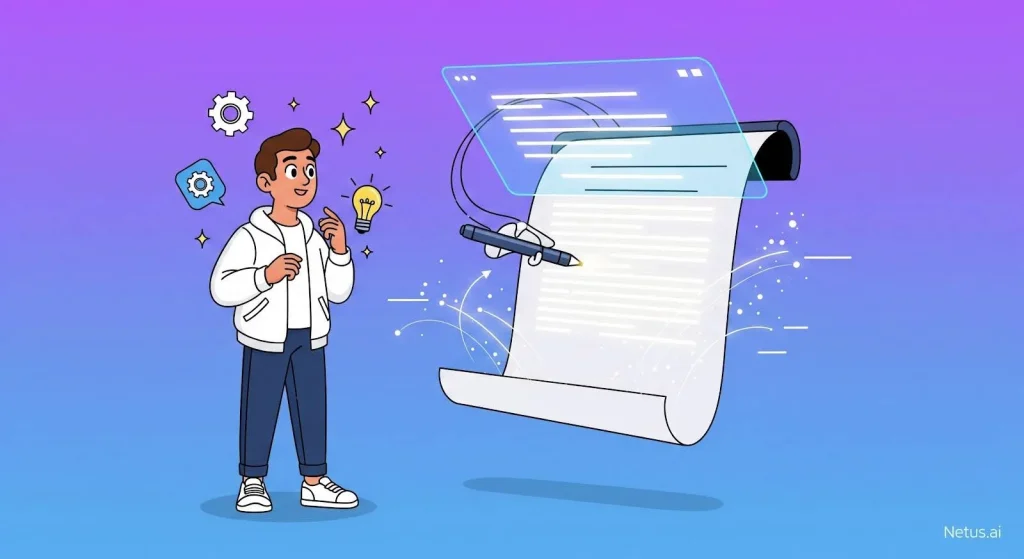
AI became a mainstream technology in 2022 and has been developing for several years since.
Statista found that about 35% of people often use AI for learning, while 47% use it sometimes.
AI tools are now widely considered fundamental, not novel.
The increasing use of AI presents both opportunities and challenges. This discussion will explore the advantages and disadvantages associated with AI generated content.
Opportunities in AI generated content
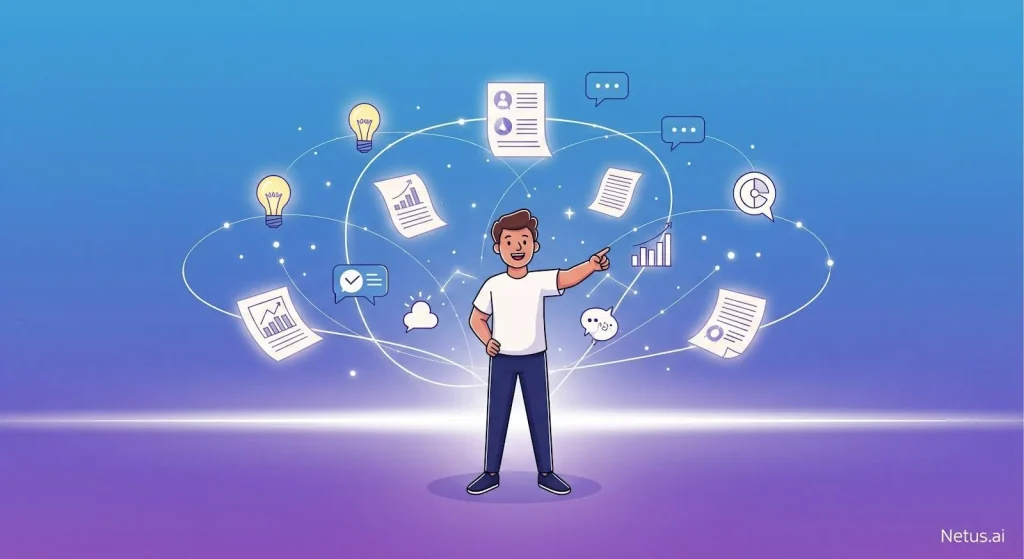
We’ll begin by exploring the most significant opportunities presented by AI generated content.
Idea generation
AI generated content offers significant advantages, particularly in content ideation and brainstorming. It serves as an excellent digital marketing assistant, especially beneficial for small businesses or marketers operating with limited budgets. AI tools effectively bridge gaps, suggest diverse perspectives and help pinpoint user intent.
Acquiring new knowledge
AI chatbots are transforming education by making research and in-depth learning more accessible than ever. These tools offer quick answers and can handle follow-up questions, letting users explore topics at their own pace.
Summary
ChatGPT and similar tools excel at creating detailed writing briefs. These briefs offer comprehensive guidance for teams or freelancers, outlining the content’s subject, target audience and structural requirements.
Translation
Finally, AI generated content offers excellent translation capabilities. This enables accessing or publishing content in multiple languages.
The challenges of AI generated content
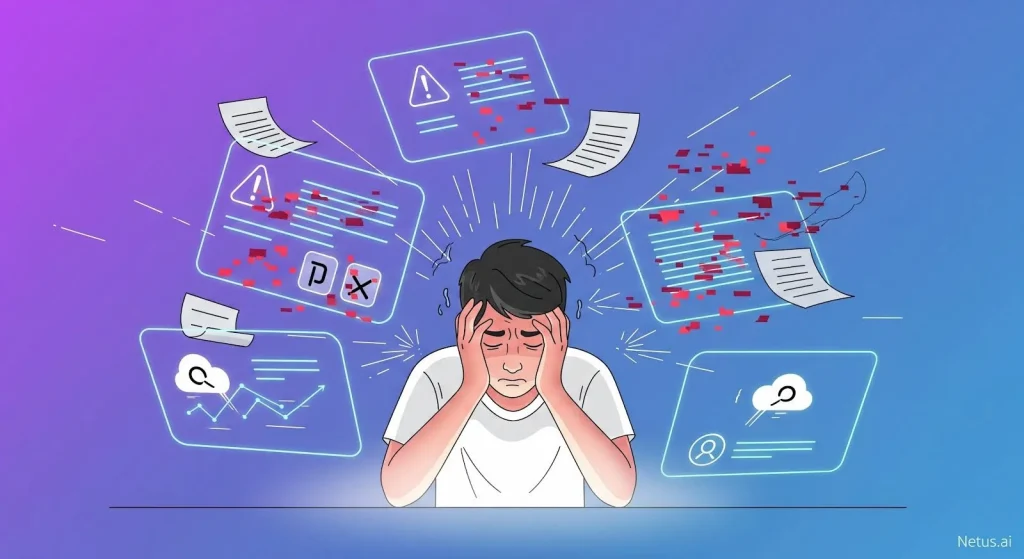
Generative AI presents numerous opportunities alongside significant challenges.
Addressing plagiarism
The emergence of generative AI has introduced a significant challenge: plagiarism. Websites and brands worry about AI using their data for model training, creating competitors.
The New York Times is suing OpenAI over the AI’s use of copyrighted material.
Issues with search ranking
AI helps SEO with tasks like keyword research and content briefs. Overusing content generation tools or violating Google’s Scaled Content Guidelines can negatively impact your search rankings.
User experience (UX)
Over-reliance on AI generated content can reduce quality, impacting user experience.
Consider a scenario where a search on any given topic yields ten identical results, each merely rephrased. This lack of diverse thought and opinion could potentially hinder the depth of research and discussion.
Misinformation: Its proliferation
Over-reliance on generative AI can also contribute to the spread of misinformation. AI tools often gather and re-present search results as new content.
AI can inadvertently contribute to the spread of misinformation by presenting misleading, incorrect or inflammatory data as factual. This underscores the critical importance of fact-checking.
The future of AI generated content: 3 potential scenarios
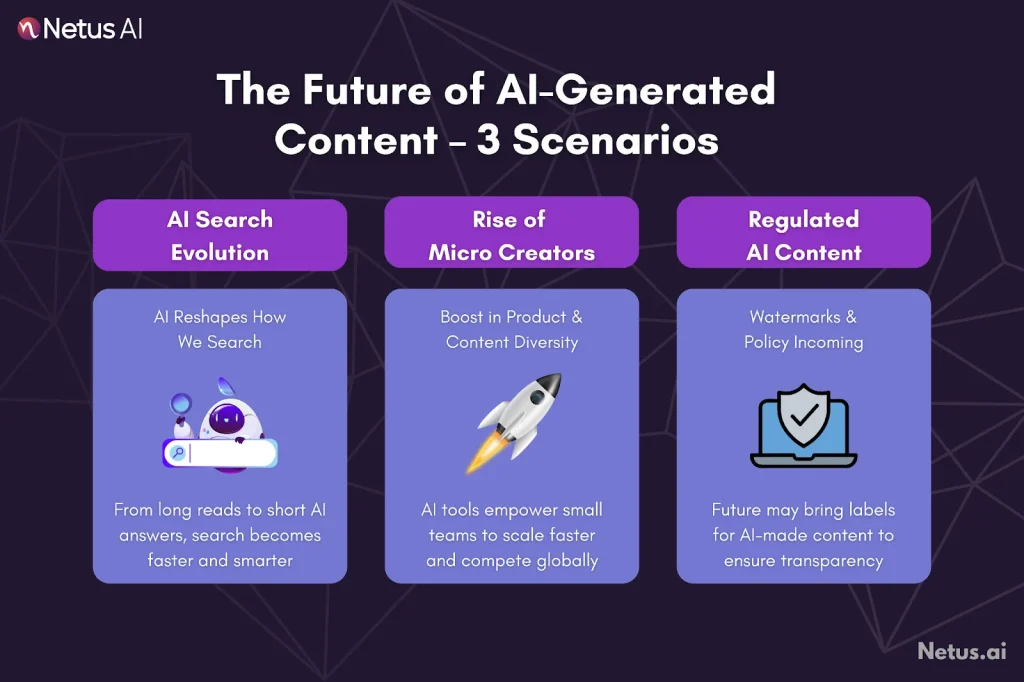
Considering the opportunities and challenges, three potential future scenarios for AI generated content are outlined below.
The future of search engines: An AI-driven transformation
The widespread adoption of AI for learning new information indicates a shift in how individuals utilize search engines. AI’s ability to quickly summarize extensive articles into concise paragraphs helps users save time.
Search engines like Google will likely continue to refine moderation policies and approaches, focusing on people-first content.
Additionally, many search engines currently integrate AI into their platforms or provide AI-powered features.
Greater variety in products and services
Effective AI tools could enhance brand productivity, impacting product and service variety and accessibility.
This eases content creation for small teams, fostering new businesses, increasing competition and expanding customer choice.
Watermarks and regulations for AI
Future AI advancements may require stricter regulations, such as AI watermarks or labels on generated content. For instance, Meta already employs an “AI info” label for content produced by artificial intelligence.
These regulations demonstrate transparency for readers.
A significant challenge lies in the implementation and oversight of such a system. Our study on ChatGPT words and phrases highlights the difficulty humans face in identifying AI generated content.
How NetusAI adds value in the AI content landscape
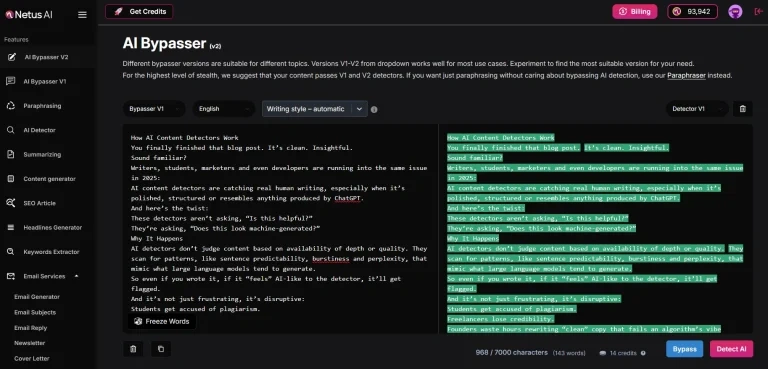
NetusAI is instrumental in navigating the dynamic environment of AI generated content. It effectively tackles the primary challenges and leverages the opportunities discussed in the article.
NetusAI plays a crucial role in tackling plagiarism and upholding originality by detecting AI generated content. This service helps content creators and businesses identify AI generated text, protecting their intellectual property, ensuring originality, preventing copyright infringement and safeguarding their reputation.
Maintaining user experience and quality: NetusAI’s ability to identify AI generated content allows users to proactively assess and refine their content. This approach prioritizes human creativity, preventing uninspired content and enriching the user experience.
Combating misinformation: Generative AI risks spreading misinformation but NetusAI helps identify AI generated text to counter this. This capability allows individuals and organizations to exercise greater scrutiny over content, reducing the spread of inaccurate information.
Navigating search ranking issues: Overusing AI content can harm SEO if it violates Google’s guidelines. NetusAI assists in maintaining quality standards and preventing search engine penalties. It ensures “people-first” content by adapting to evolving moderation policies.
Supporting transparency and regulation: NetusAI provides tools for identifying AI generated content, which aligns with potential regulations. This empowers users to be transparent about their content’s origin, even without universal watermarking systems. A study on “ChatGPT words and phrases” found that people struggle to differentiate between AI- and human-written text.
NetusAI serves a vital function in the expanding world of AI generated content. It provides essential oversight and verification, thereby guaranteeing quality, originality and trustworthiness. Furthermore, it aids users in complying with developing ethical and regulatory guidelines.
Final thoughts
The rise of AI generated content presents a duality of profound opportunities and significant challenges.
AI tools offer remarkable efficiency in content creation, idea generation, knowledge acquisition and translation. However, they also present challenges regarding plagiarism, maintaining search ranking integrity, ensuring a positive user experience and managing the spread of misinformation.
The future of AI generated content is set for major shifts. Search engines will likely be reshaped by AI, leading to a broader array of products and services. Consequently, there will be a greater demand for regulations like AI watermarks to ensure transparency.
Integrating AI into content creation successfully relies on human oversight, ethical considerations and a dedication to quality assurance. NetusAI will be crucial for managing AI generated content in an increasingly AI-centric world. They will ensure originality, uphold quality, fight misinformation and promote transparency.
FAQs
AI tools and algorithms create content, such as text and images, using prompts or data.
How is AI generated content impacting industries?
AI generated content is transforming industries by boosting efficiency in content creation, idea generation, knowledge acquisition and translation, impacting digital marketing and education.
What are the main opportunities presented by AI generated content?
AI offers opportunities like better idea generation, easier access to knowledge via chatbots, efficient content summarization and improved translation for broader reach.
What are the significant challenges associated with AI generated content?
Key challenges involve plagiarism, copyright, potential SEO penalties, diminished user experience and misinformation spread.
How can AI generated content affect user experience (UX)?
Over-reliance on AI without human oversight degrades content quality and diversity, hindering research, discussion and user experience through repetitive search results.
What is the role of human oversight in AI generated content?
Human oversight is crucial for maintaining quality, ensuring ethical considerations, and applying judgment. Even with AI automating tasks, human creativity and discernment remain essential to prevent plagiarism, misinformation and generic content.
How might search engines adapt to the rise of AI generated content?
Search engines like Google are likely to continue refining moderation policies, focusing on “people-first” content. AI integration is increasing, potentially leading to efficient, AI-driven search experiences that summarize information.
Will there be regulations or watermarks for AI generated content?
Future AI advancements may require stricter regulations, such as watermarks or labels, to identify AI generated content. Some platforms, like Meta, already use “AI info” labels to promote transparency for readers.
How can tools like NetusAI help in the AI content landscape?
NetusAI’s services detect AI generated content, crucial for addressing plagiarism, promoting originality, ensuring quality, aiding search ranking and supporting transparency.

